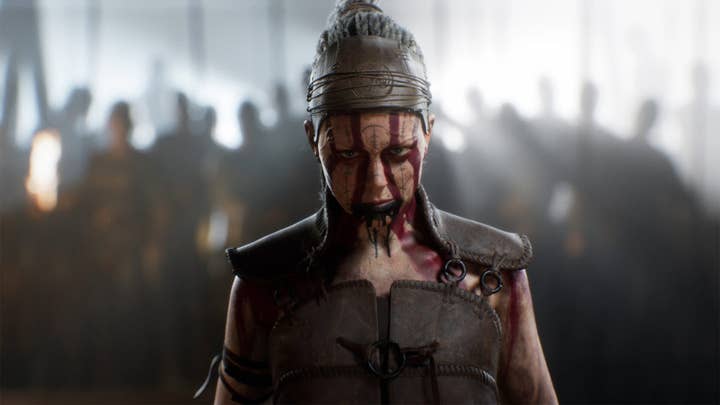Xbox Series X gets its first great soundbite | Opinion
Never mind the teraflops -- Microsoft's pledge that it won't make consumers re-buy their games on new hardware is a powerful differentiator for Xbox
While Sony is keeping its powder dry for what will presumably be a mammoth reveal of PlayStation 5 in a few months -- assuming, of course, that supply chain disruption doesn't derail its launch plans for the system -- Microsoft is taking quite the opposite tack with Xbox Series X. We know rather a lot about the new Microsoft system already, and the firm isn't being shy about info-dumping plenty of additional details about the console and its launch plans on a regular basis.
That strategy is absolutely sensible, because one of the bigger tasks facing Xbox Series X is a communications challenge. Microsoft is doing something very new with this console, committing fully at last to the paradigm shift it has hinted at since the very outset of the Xbox brand -- moving away from the notion of the console as a monolithic, static platform that lasts five to seven years and is then replaced, and embracing the concept of the console as a consistent, eternal platform running on a variety of steadily evolving hardware products.
It's a lot to take in, even for the games industry itself. For consumers, though, who have been used to the former model for decades, and will continue to be offered variations on that model by Sony and Nintendo... Well, it's more than reasonable for Microsoft to take a few months to communicate exactly what it's doing and why it's doing it.
The 12 teraflops figure -- and any other measurement of supposed technical prowess -- is going to do little to excite most consumers
The most recent info dump about Xbox Series X came just a few days ago and, with rather unfortunate timing, has mostly ended up being swamped in news about the coronavirus -- which may of course also end up derailing Microsoft's launch plans, along with those of every other hardware manufacturer in the industry. In keeping with the objective of easing consumers into this new paradigm, it was an interesting mixture of two very different aspects of the console; some stuff about technical specifications and features, which is bread and butter pre-launch communication for a console, and some stuff about software publishing policies, which is very much not.
If you follow the specialist press, you'd assume that the biggest takeaway from the announcement was that the console will have 12 teraflops of processing power -- which is indeed a number significantly larger than the last number which consumers nodded sagely at and acknowledged to be, indeed, a number, before going out and buying whatever console had the games they liked best.
We're going to be subjected to endless dick-measuring over that number for the next few years. You know what I mean; as soon as one is declared bigger, someone else is going to chime in to say it's being measured wrong, and another person will say that there are other measurements that should be taken into account too, and meanwhile anyone with the slightest cop-on is going to quietly note that the measurements are meaningless if you're not going to do anything interesting, exciting and innovative with all your teraflops -- it's the smutty adolescent metaphor that just keeps giving.
I suspect, if it's not clear from the above, that the 12 teraflops figure -- and any other measurement of supposed technical prowess -- is going to do little to excite most consumers. What might well excite consumers, though, is something that almost went overlooked in the instant rush to gibber about a tech bullet-point, and that's Microsoft's announcement, or perhaps confirmation, of a really key software policy.
This is a genuinely dramatic departure from the position Sony is most likely to end up in
The company isn't going to launch Xbox Series X versions of Xbox One titles for consumers to buy. No filling up the early launch schedule of the new console with updated reissues of the hits of the last generation. This is to some degree merely an affirmation of the company's previously stated software policies -- it already said it wasn't going to release Xbox Series X exclusives, implying that its new games for years to come would run across the Xbox family -- but it serves as concrete confirmation of one of the most impactful aspects of that policy.
Moreover, and most importantly, this is a genuinely dramatic departure from the position Sony is most likely to end up in. In the last generation, Sony made significant headway -- and significant bank -- from an approach of adding graphical enhancements to major late-generation PlayStation 3 titles and re-releasing them on PlayStation 4. This wasn't an approach limited to first-party titles by any means -- lots of publishers jumped on the bandwagon and did very nicely out of it, effectively giving some of their biggest previous-generation games a second bite at the cherry -- but it was Sony's first-party efforts like The Last of Us which blazed the trail.

Now, swamped up in the panic around COVID-19 as it may be, Microsoft has seemingly hit upon a way to make that strategy into a pain point for Sony. "You'll never have to buy the same game twice" is a pretty big, easy to understand and appealing selling point for a console strategy that, while clever, has often felt a bit abstract and long-term from the consumer point of view. Moreover, it could be a soundbite that Microsoft gets to roll out again, and again, and again over the coming year or so.
It's a great marketing strategy, one which puts Sony on the back foot and looking, perhaps, a little greedy and out of touch
There is every likelihood that Sony is planning for some of its major upcoming titles, including The Last of Us 2, to leap generations, launching a PS4 version for the huge installed base of the current hardware but also preparing a PS5 version to entice early adopters of the new console. If that's the case, Microsoft will get to twist the knife with a sharp, digestible soundbite every time Sony mentions one of these updated games.
Of course, the reality is a little more complex. This is a strategy that Microsoft can afford to roll out with minimal damage to itself or its publishing partners precisely because the Xbox One installed base isn't all that huge, and its console hasn't had much high-profile exclusive software in its twilight years anyway. If Sony follows suit -- which is possible, though arguably out of character -- it would be a vastly more costly enterprise, robbing the company of a potentially major source of revenue in the first year or so of PS5's time on the market.
Yet the fact that the actual impact of this strategy on Microsoft's bottom line and on the wallets of its consumers is minimal isn't the point; it's a great marketing strategy, one which puts Sony on the back foot and looking, perhaps, a little greedy and out of touch.
Sony, for its part, can't really protest all that much. If Microsoft effectively uses this attack line to differentiate its offering as being more consumer-friendly, it is taking a leaf from its rival's playbook more than anything else. Back when Xbox One was going through the tortuous, and ultimately somewhat disastrous, motions of its launch, the console sported a convoluted and fairly unappealing -- though it has its defenders to this day -- approach to used games or sharing games with friends. Sony released a brief, tongue-in-cheek "video guide" to sharing games on PS4, featuring Shuhei Yoshida simply handing a physical a copy of Killzone: Shadow Fall to Adam Boyes. The video has been watched 17 million times on YouTube, and while Microsoft quickly reversed its unpopular policy, the damage to consumer perception of Xbox took far, far longer to repair.
One could forgive some people on the Xbox team if they've been waiting seven long years to find a way to repay that particular favour. This is the kind of leverage that Microsoft would be wise to seize, too; other aspects of its next-gen offering might be much harder to sell, and the "Xbox Series X will have no exclusives" line already seems to have a decent amount of traction, which demands an equally snappy comeback. It's unfortunate, perhaps, that this kind of soundbite is what much of the next-gen battle will come down to -- but it's also more or less inevitable, at least in the early stages before the respective companies' first-party software stables really start to make their impact felt.
Both of the competing visions that Microsoft and Sony wish to sell to consumers have a positive story to tell. Much of how these platforms' launches shake out will come down to how well each firm can articulate their story, and as further details emerge in the coming months, each side will be watching closely to see where their soundbites, slogans and attack lines might emerge. In eschewing selling improved versions of old games on next-gen hardware, Microsoft may just have found the first of those.

